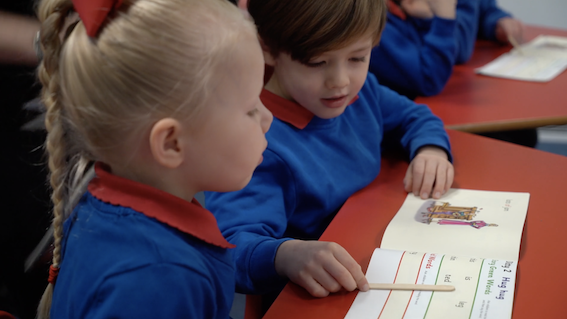It’s bad enough to pay pupils to turn up to school or to get good marks, but what I find really shocking is the idea that primary-age children should be paid for reading a book. Yet many schools in the UK and in the USA are awarding certificates, stickers, points – and even points with a monetary value – for each book a child reads, verified by a quiz on the text.
Offering a reward that has to be earned suggests to children, at an early age, that reading is an unpleasant task which they need to be bribed to do. Children should read because they love reading, not because they are getting paid or rewarded by their teachers. Readers keep reading because they are intrigued by the stories and want to know what happens next. Along the way they imbibe new words and ideas, encounter other worlds and feed their imagination.
We know that children who read a lot do well at school. Research has found that nine-year-olds at the 90th percentile read in two days, by choice at home, what children at the 10th percentile read in a whole year. Reading gives children access to a rich vocabulary they would not encounter otherwise. For example, on page two of The Giant’s Necklace, a story for eight-year-olds and older by Michael Morpurgo, they come across words such as ‘pursuit’, ‘invariably’, ‘relentlessly’, ‘diminutive’, ‘slight’, ‘wither’, ‘scornful’ and ‘interminable’.
Schools using a ‘pay-by-book’ or ‘count the number of words read’ scheme defend the inducement by saying that the end justifies the means. They believe that if children are reading, for whatever reason, they will do better, not just in English but across the curriculum. Research – and common sense – suggests otherwise. By offering a reward we are saying “this task is useful but undesirable, so we need to persuade you to do it”. Besides suggesting that reading is a task and not a pleasure, giving rewards takes away self-motivation and replaces it with calculation.
American psychologists Mark R. Lepper and David Green set out to test the efficacy of rewards on pre-school children. Children who were known to enjoy drawing were asked to draw with crayons for six minutes. One group were told to expect a reward of a certificate with a gold seal and ribbon for taking part. A different group were not promised or given any reward. Children who expected a reward drew for just half the time compared to those who did not receive any reward. In addition, judges rated the pictures drawn by the children expecting a reward as less aesthetically pleasing.
Like caffeine, rewards may offer a short-term boost but the effect wears off quickly and reduces long-term motivation. The other problem lies in knowing when to stop. If you pay once, then you have to keep on paying because the chances are that the child will stop once no reward is in sight. If you give children stickers, tokens, certificates (or points with monetary value) for every three books they read, will they read a fourth? If you count the words they read, they will soon work out that they can get more rewards by choosing easier books. They play the system. Even worse, they begin to measure themselves and each other according to word count: “You have only read 4,000 words? You must be a bit stupid.”
There are better ways to foster a love of reading, starting by making sure they can read – and by reading to them – every day. Reading is its own reward; there are worlds to discover inside books, and children can find people just like them and who are different. A book can make them feel happy, sad, excited, touched or even angry at times. No sticker or points towards a cinema ticket can provoke such an emotional reaction. As Maryanne Wolf, the Director of the Center for Reading and Language Research at Tufts University, Massachusetts, puts it:
“Emotional engagement is often the tipping point between leaping into the reading life or remaining in a childhood bog where reading is endured only as a means to other ends…After all the letters and decoding rules are learned, after the subterranean life of words is grasped, after various comprehension processes are beginning to be deployed, the elicitation of feelings can bring children into a lifelong, head-on love affair with reading and develop their ability to become fluent, comprehending readers.”

